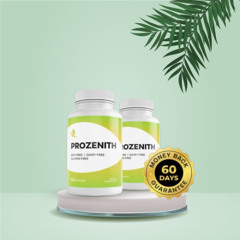
Anti-Inflammatory Diet: What To Eat (and Avoid)
Chronic inflammation is a hidden enemy behind many health problems, including heart disease, diabetes, arthritis, and even some cancers. While inflammation is your body’s natural response to injury or infection, long-term inflammation can do more harm than good.
Luckily, one of the most effective ways to fight inflammation starts right on your plate. An anti-inflammatory diet can help reduce pain, boost immunity, and support overall health. Let’s explore the foods to eat and the ones to avoid for a more balanced, less inflamed body.
What Is an Anti-Inflammatory Diet?
An anti-inflammatory diet focuses on eating whole, natural foods that fight inflammation and avoiding processed or unhealthy options that trigger it.
This isn’t a strict or fad diet—it’s a long-term eating pattern that nourishes your body and protects it from chronic disease. Many of the foods included are also part of the Mediterranean diet, which is widely praised for its health benefits.
Best Anti-Inflammatory Foods to Eat
These foods are rich in antioxidants, healthy fats, vitamins, and minerals that calm inflammation.
1. Fruits and Vegetables
Fruits and veggies are full of antioxidants, which fight damage caused by free radicals. Aim for a rainbow of colors each day.
Best choices:
-
Berries (blueberries, strawberries, raspberries)
-
Leafy greens (spinach, kale, arugula)
-
Cruciferous vegetables (broccoli, cauliflower, Brussels sprouts)
-
Tomatoes
-
Oranges, grapes, cherries
2. Fatty Fish
Fish like salmon and sardines are rich in omega-3 fatty acids, which are strong inflammation fighters.
Try to eat:
-
Salmon
-
Mackerel
-
Tuna
-
Sardines
(At least two servings a week)
3. Whole Grains
Unlike refined grains, whole grains have more fiber, which helps lower C-reactive protein (CRP), a marker of inflammation.
Go for:
-
Oats
-
Brown rice
-
Quinoa
-
Barley
-
Whole wheat
4. Nuts and Seeds
These small foods are packed with healthy fats and antioxidants. Just keep portions moderate—they’re calorie-dense.
Healthy picks:
-
Almonds
-
Walnuts
-
Chia seeds
-
Flaxseeds
-
Pumpkin seeds
5. Legumes
Beans and lentils are excellent sources of protein, fiber, and antioxidants.
Options include:
-
Black beans
-
Lentils
-
Chickpeas
-
Kidney beans
6. Healthy Fats (Especially Olive Oil)
Extra virgin olive oil is a major part of the Mediterranean diet and is known to reduce inflammation.
Other good fats:
-
Avocados
-
Coconut oil (in moderation)
-
Nut butters (natural, unsweetened)
7. Herbs and Spices
Many herbs and spices offer natural anti-inflammatory benefits.
Add to meals:
-
Turmeric (with black pepper to boost absorption)
-
Ginger
-
Garlic
-
Cinnamon
8. Green Tea
Packed with antioxidants called catechins, green tea helps fight inflammation and even supports weight loss.
Foods to Avoid (They Fuel Inflammation)
These foods can trigger or worsen inflammation in the body. Eating them occasionally won’t harm, but regular consumption can cause long-term problems.
1. Refined Carbohydrates
White bread, pastries, and other refined grains are quickly digested, causing spikes in blood sugar.
Limit or avoid:
-
White bread
-
Sugary cereals
-
Pasta made from white flour
-
Baked goods
2. Sugar and Sweetened Drinks
High sugar intake can cause inflammation and insulin resistance.
Watch out for:
-
Soda
-
Sweetened juices
-
Candy
-
Ice cream
-
Energy drinks
3. Fried Foods and Fast Food
These foods are often high in trans fats and processed oils, which are strongly linked to inflammation.
Examples:
-
French fries
-
Fried chicken
-
Burgers
-
Processed frozen meals
4. Processed Meats
These meats often contain preservatives and additives that are known to cause inflammation.
Avoid or cut back on:
-
Sausages
-
Bacon
-
Deli meats
-
Hot dogs
5. Excess Alcohol
While small amounts of wine may be fine, heavy drinking promotes inflammation and damages the gut.
Safe guideline:
-
1 drink/day for women
-
2 drinks/day for men
6. Artificial Additives and Preservatives
Many packaged snacks and fast foods contain artificial ingredients that can irritate the body.
Check labels for:
-
MSG
-
Sodium nitrates
-
Artificial colors
-
Artificial sweeteners
Sample One-Day Anti-Inflammatory Meal Plan
Here’s a quick look at what a typical anti-inflammatory day could look like:
Breakfast:
-
Oatmeal topped with blueberries, chia seeds, and walnuts
-
Green tea
Lunch:
-
Quinoa salad with mixed greens, cherry tomatoes, avocado, and grilled salmon
-
Olive oil & lemon dressing
Snack:
-
A handful of almonds and an apple
Dinner:
-
Stir-fried vegetables with tofu or chickpeas
-
Brown rice
-
Turmeric-ginger tea
Benefits of Following an Anti-Inflammatory Diet
When followed consistently, this diet may lead to:
✅ Reduced joint pain and stiffness
✅ Better digestion
✅ Lower risk of chronic diseases (heart disease, diabetes)
✅ Healthier skin
✅ Improved energy levels
✅ Better brain function
Final Thoughts
Inflammation doesn’t go away overnight—but your food choices can help your body heal over time. An anti-inflammatory diet isn’t about strict rules or depriving yourself. It’s about choosing natural, wholesome ingredients that support your health while cutting back on foods that do harm.
Start by adding more fruits, vegetables, healthy fats, and whole grains to your plate. Even small changes can lead to big improvements in how you feel.
Remember: What you eat has the power to either fight or fuel inflammation. Choose wisely—for your body, mind, and future. As you explore this path, don’t hesitate to reach out for more resources and inspiration on holistic health. For comprehensive insights into mindful living, visit venzec.icu.


